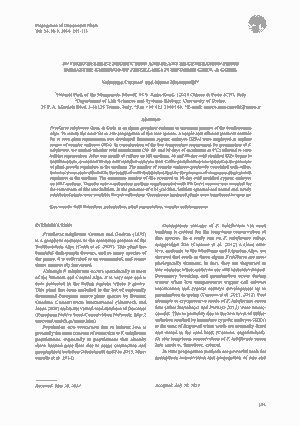NEWS 2014
In Vitro Bulblet Production and Plant Regeneration from Immature Embryos of Fritillaria tubiformis Gren. & Godr.
CARASSO, Valentina¹, MUCCIARELLI, Marco²
Propagation of Ornamental Plants 14(3): 101-111 (2014)
http://www.journal-pop.org/2014_14_3_101-111.html
¹Natural Park of the Marguareis Massif, 34 S. Anna Road, 12013 Chiusa di Pesio (CN), Italy
²Department of Life Sciences and Systems Biology, University of Torino, 25 P. A. Mattioli Blvd, I-10125 Torino, Italy
Abstract
Fritillaria tubiformis Gren. & Godr. is an alpine geophyte endemic to mountain prairies of the South-western Alps. To satisfy the need for ex situ propagation of this rare species, a simple and efficient protocol suitable for in vitro plant regeneration was developed. Immature zygotic embryos (IZEs) were employed as explant source of somatic embryos (SEs). In consideration of the low temperature requirement for germination of F. tubiformis, we studied whether cold stratification (30, 60, and 90 days of incubation at 4°C) affected in vitro bulblet regeneration. After one month of culture on MS medium, 30 and 60-day cold stratified IZEs begun to dedifferentiate, in contrast 90-day cold stratified embryos died. Callus proliferation was optimal in the presence of plant growth regulators in the medium. The number of somatic embryos positively correlated with callus, however it was more affected by the length of cold stratification than by the presence of exogenous plant growth regulators in the medium. The maximum number of SEs occurred in 30-day cold stratified zygotic embryos on MS2 medium. Transfer onto a maturation medium supplemented with 4% (w/v) sucrose was essential for the conversion of SEs into bulblets. In the presence of 4.92 μM IBA, bulblets sprouted and rooted and, newly established plants were available for pot cultivation. Greenhouse hardened plants were transferred to open air.

